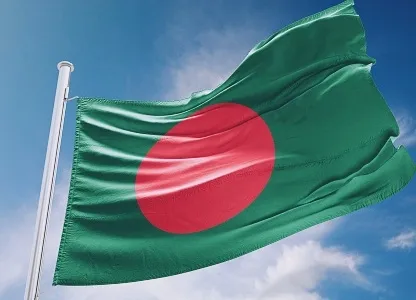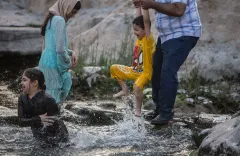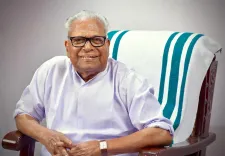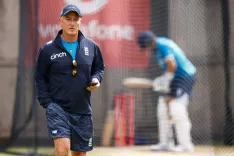Is Bangladesh's Political Landscape at Risk Due to One Leader Holding Multiple Roles?

Synopsis
Key Takeaways
- Political Debate: A significant leader's multiple roles spark controversy.
- Party Positions: BNP supports multiple roles; NCC calls for restrictions.
- Alternative Leadership: Critics argue for fostering new leaders.
- Political Stability: Discussions aim to address ongoing uncertainty.
- Democracy at Stake: The need for clear reform and accountability is highlighted.
Dhaka, July 21 (NationPress) A new political debate has surfaced in Bangladesh as opposing factions quarrel over a significant leader occupying various crucial roles in both the government and the political party, according to local news sources.
Speaking to the press on Sunday after the 15th day of the second phase of discussions between political factions and the National Consensus Commission (NCC) of Bangladesh, held at the Foreign Service Academy in Dhaka, Salahuddin Ahmed, a member of the Bangladesh Nationalist Party (BNP) Standing Committee, shared insights from the meeting.
As tensions rose, the BNP endorsed the concept of one individual assuming multiple positions, including that of Prime Minister, Leader of the House, and party leader. However, the NCC proposed limiting individuals to a singular top role, a suggestion backed by the National Citizen Party (NCP) and others.
On the other hand, Jamaat-e-Islami supported the notion of one person holding two roles, namely Prime Minister and Leader of the House, but rejected the concentration of all three roles in a single individual.
“While there is consensus on the Prime Minister also serving as Leader of the House, the debate continues regarding the necessity of that same person being the party leader. Our party has submitted a written proposal reiterating this stance in previous discussions,” Salahuddin was quoted by the prominent newspaper Dhaka Tribune.
“The possibility of the party leader becoming Prime Minister must be preserved as a democratic right. The parliamentary party should have the option to choose the leader as Prime Minister or nominate another. Eliminating this option would be undemocratic and contrary to parliamentary practices,” he stated.
Taking a notably different stance, Ariful Islam Adeeb, senior joint convener of the NCP, remarked, “Allowing one person to hold the roles of Prime Minister, party leader, and Leader of the House stifles the emergence of alternative leadership. We advocate for the cessation of this practice.”
Jamaat leader Nayeb-e-Ameer Syed Abdullah Muhammad Taher expressed that when a single individual holds the positions of Prime Minister, Leader of the House, and party chief, it disrupts the political framework.
“Members of Parliament are unable to express themselves, and party leaders and activists live under constant apprehension. We believe that while one individual can serve as Prime Minister and Leader of the House, they should not also take on the role of party chief. This separation would restore equilibrium in the political landscape and foster leadership development,” he commented.
Last month marked the beginning of the second phase of discussions with 30 political parties and the NCC amid ongoing political uncertainty and instability in Bangladesh.
This latest series of talks aims to finalize the recommendations from various reform commissions established by the interim government and develop the July Charter. The discussions have centered on completing the unfinished recommendations from the first round.
The absence of a clear reform roadmap and election guidelines has intensified political turmoil in Bangladesh, as leaders from multiple parties continue to challenge the controversial policies of the Muhammad Yunus-led government and the inadequate performance of his questionable advisors.









